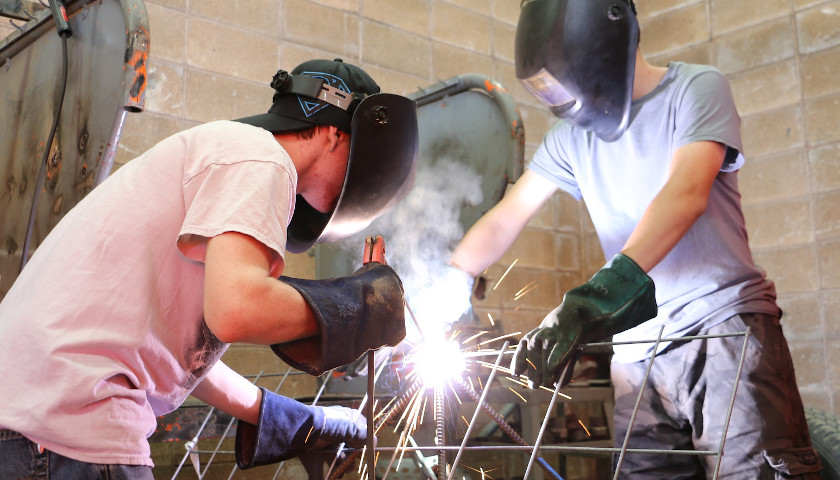The Michigan House of Representatives Education Committee approved legislation that increases accessibility to apprenticeship programs in high schools on Thursday.
The legislation, sponsored by Rep. Ben Frederick (R-85-Owosso), brings Michigan apprenticeship and pre-apprenticeship programs in line with federal workforce mandates so federal funding can be used.
“Modern apprenticeships are in emerging and high-growth sectors such as energy conservation, health care and information technology, in addition to traditional industries such as manufacturing and construction,” Frederick said in a statement. “Apprenticeships are a great option for people seeking a job in skilled trades without college debt and we should do all we can to make these programs accessible, especially as students consider their future careers.”
The bill adds apprenticeship and pre-apprenticeship programs to the definition of “proprietary schools,” as long as the programs are registered under the national apprenticeship act.
Apprenticeship programs and other trade education are often seen as a way to enter a high-paying field without taking on the debt typically associated with a college education.
“At this time of increased federal and state support for the advancement of apprenticeship programs, this legislation is critical to allow us the flexibility to assist job seekers to enter these high skill and high wage careers without the burden of college debt,” said Jodi Kerbyson, CEO of GST Michigan Works! in testimony provided to the committee.
President Trump has previously voiced support for increased technical education, a stance that has been backed up by conservative leaders.
Kent Misegades, author of the new book Guide to Shop and Engineering: An Introduction to the Industrial Arts, said that shop class and technical training used to be a staple in American education.
“Until the late 70s, nearly every young man in America took one or more years of ‘Shop’ class, also known as ‘Industrial Arts’ or today ‘Career and Technical Education – CTE’. The shop skills and basic engineering knowledge acquired in these lessons enabled generations of Americans to make, fix and grow things,” Misegades told The Tennessee Star. “This saved them money, brought them great satisfaction, launched careers and helped establish countless businesses that employ millions today.”
“Dirty Jobs” host Mike Rowe has also called for increased vocational training, saying that a lack of shop education has led to increased student debt.
“The skills gap today, in my opinion, is a result of the removal of shop class and the repeated message that the best path for most people happens to be the most expensive path. This is why, in my opinion, we have $1.6 trillion of student loans on the books, and 7.3 million open positions, most of which don’t require a four-year degree,” Rowe said. “…We’re just disconnected. We’re rewarding behavior we should be discouraging. We’re lending money we don’t have to kids who are never going to be able to pay it back to train them for jobs that don’t exist anymore. That’s nuts.”
The legislation, which was approved unanimously by the committee, will now go to the House Ways & Means Committee for further consideration.
– – –
Jordyn Pair is a reporter with The Michigan Star. Follow her on Twitter at @JordynPair.
Photo “Shop Class” by Bureau of Land Management. CC BY 2.0.








